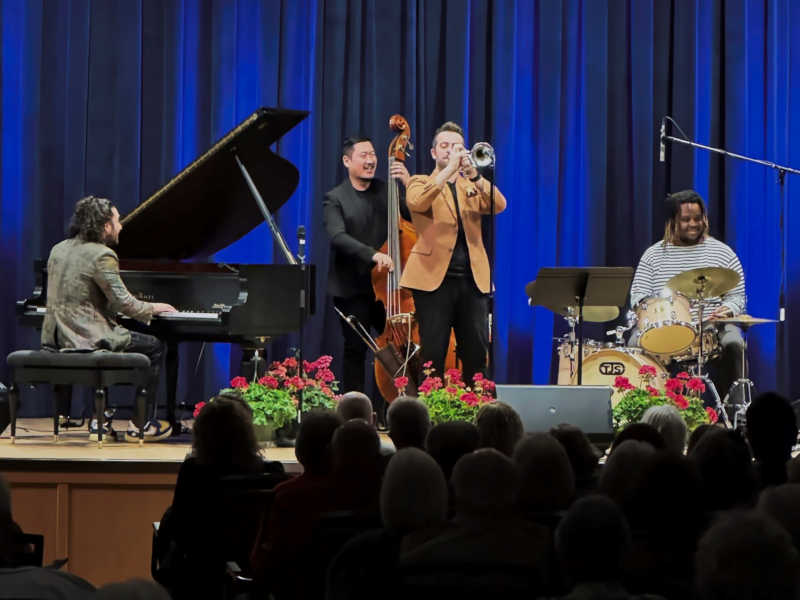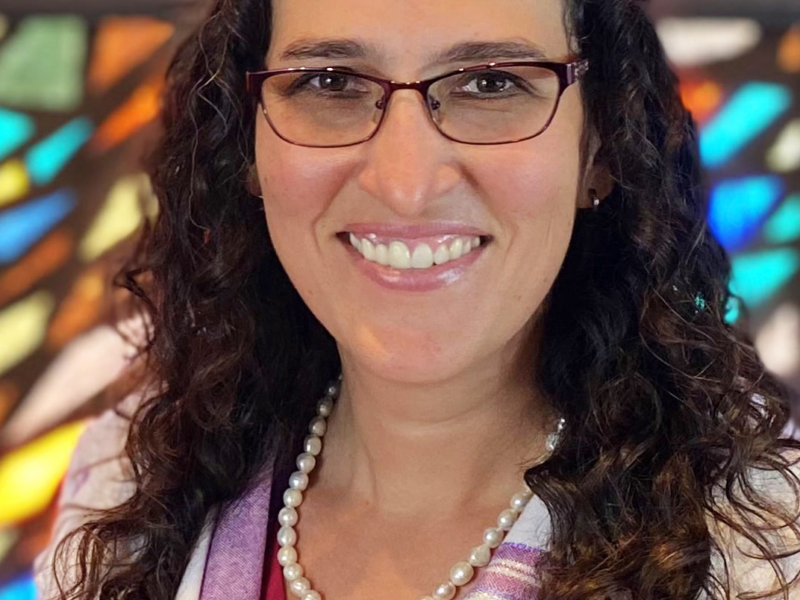Joseph Specter is excited about his move to Phoenix to assume the helm as president and general director of Arizona Opera. His wife, Kate, spent her childhood in the Valley until the age of 10, so it’s a homecoming of sorts for the Specters and their two daughters, Sophie (8 years old) and Charlotte (4 years old).
“This is an exciting new chapter for us,” says Joe, who spent the last four years as general director of Austin Opera. “Arizona Opera is a really wonderful company. Like Austin Opera, it has had its challenges … and for similar reasons. In opera itself there are broad industry challenges, figuring out how we can best connect this really wonderful art form to the next generation. It’s a period where companies are redefining themselves, redefining the art form and making sure that we’re providing the most incredible experience and educational opportunities we can to the communities we serve. It’s an evolution.”
Growing up in a Jewish family that loved music, Joe recalls that they were always singing – although he was the only one to pursue music professionally. “When I was a little kid, I often thought about becoming a cantor, as a way to combine faith and music,” he says. Joe earned an artist diploma from Philadelphia’s Academy of Vocal Arts and then a double-degree in political science from Tufts University and in voice from the New England Conservatory of Music, reflecting his diverse interests.
As a professional baritone, Joe performed in over 20 operatic and musical theater roles. During this time, he also worked on and off in financial services, spending three years serving institutional investors in client services and marketing. This background prepared him for his job as director of institutional relations at the Metropolitan Opera in New York, which combined both his passion for opera and business acumen.
In 2012, he saw the opportunity to take this blend of talents to the next level as general director of Austin Opera. “Although I loved the Met – and I do miss New York from time to time – the chance to be part of an organization like Austin Opera, the chance to lead an organization that needed the kind of help that I thought I could provide, was such a powerful opportunity. We do these jobs because we believe in service. And the job that I’ve been able to do in Austin has allowed me to more fully realize my ability to serve a community, relative to the Met, which is a very large organization. That’s the kind of spirit that I want to bring to Arizona.”
Joe takes the reins from his colleague Ryan Taylor, who recently transitioned to Minnesota Opera. Joe says he’s known Ryan since 2000 and is impressed with Ryan’s leadership of Arizona Opera. “We were both baritones, coming up through the ranks at the same time as young artists. We’re general directors that came into the industry at the same time, looking at the same challenges in a new way. There’s a collegiality and a shared understanding of how important connection to the community is, and how open-minded we need to be to strengthen those bonds. It’s definitely a time for new models in the business,” says Joe.
According to Joe, the most determinative factor in the success of any opera company is repertoire – finding a balance between the classics and new material that inspires a new audience. When a piece connects with the community, it’s reflected in increased attendance and greater enthusiasm, expressed in other ways, such as conversations online and social media. “This is new territory for opera companies and our ability to listen to the community that we serve,” he says. “Listening is the most important piece.”
One recent success of Arizona Opera he cites is the 2014 production of the mariachi opera “Cruzar la Cara de la Luna.”
“The resonance of that piece with the community showed up in all sorts of ways. This is an exciting direction, when you’re reaching folks you haven’t typically reached. It’s critical for us to learn the lessons of those successes and build upon them,” says Joe. “The classic repertoire, the big top 10 type pieces like ‘Carmen,’ ‘La Traviata,’ ‘La Boheme’ – the pieces that are loved by just about everybody – will always remain a part of our season. I would say to anybody who loves traditional, beloved works that we will continue to present those, but at the same time look for opportunities to bring in audiences that may not be exposed and to tell stories that will engage and energize and inspire those audiences as well.”
Arizona Opera’s 2016-2017 season will include a 45th Anniversary Sapphire Celebration with renowned mezzo-soprano Frederica von Stade, the company premiere of “Rusalka,” the classic “Madama Butterfly,” its first commission “Riders of the Purple Sage” and the comedy “Cinderella.” For tickets and information, visit azopera.org or call 602-266-7464 in Phoenix or 520-293-4336 in Tucson.
Photo by Tim Trumble





